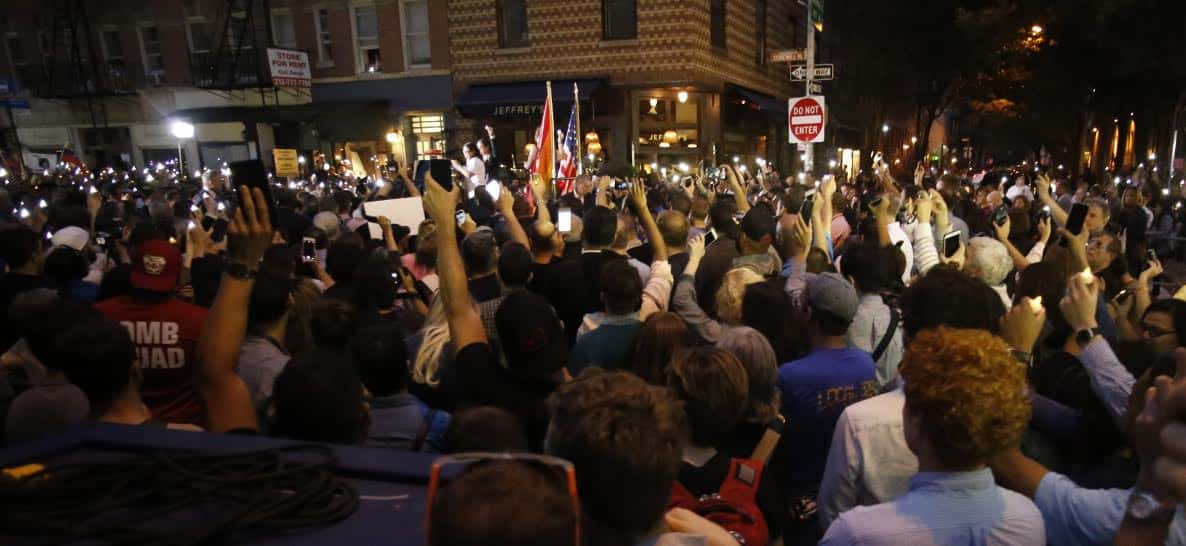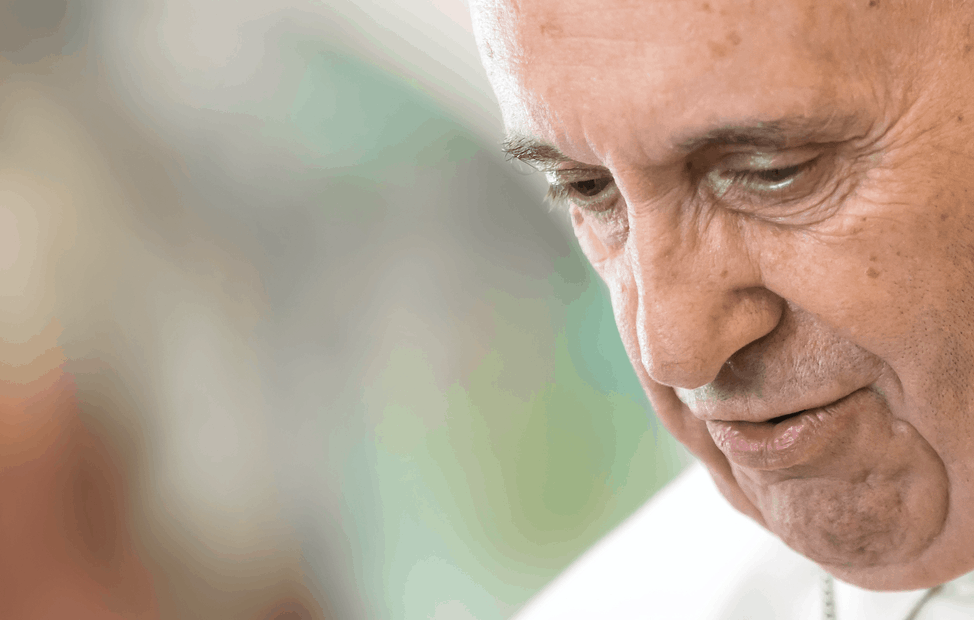
The horrifying and tragic shooting in Orlando, Florida, consumed the national—and in part, global—conversation this week. During the early morning hours of Sunday, a man walked into Pulse, a popular gay club near downtown Orlando and murdered 49 people. The man, Omar Mateen, also physically injured at least 53 more in the course of the shooting. Mateen, as you surely know by now, pledged allegiance to the Islamic State before and during the massacre.
As I wrote earlier this week, the Orlando shooting represents a collision of just about every hot-button topic in American culture—all in one public display of evil.
Whenever events of this magnitude happen, they raise all kinds of questions—questions that aren’t easy to answer. Of course, the most persistent questions center around grief and healing and how we can begin to move forward. I talked with renowned counselor and author Dan Allender about these questions, including what he thinks is the right posture for Christians in the aftermath of this tragedy.
When something happens like what happened in Orlando last weekend, what should be our first responses?
There are two things that are immediate: One is the trauma of being physically harmed and/or seeing others harmed. We have to start with the reality that the people who were in the club were traumatized, and will be traumatized for a significant period of time. And not just people who were harmed or saw harm: In one sense, the larger community of people who are family members, friends, the city and the whole nation can be traumatized with regard to this.
So the politicization that some candidates have chosen to move toward, or explanations of how this man could have wreaked such havoc on countless lives, is too quick. Our natural tendency is to want to understand so that we can control. That really doesn’t end up helping anyone engage the process of the trauma at any level.
A second issue: Once trauma has been addressed, these systemic and individual issues have to be addressed in order for some sense of closure. I’m probably working against too quick of an identification of what the problems are that brought this about. Yet, they will need to be addressed for individuals, and certainly for the community, to be able to heal.
It seems like a lot of people want to react to this shooting with “action.” They want laws against guns or new laws against Muslims—something. What do you think the posture of on-lookers to this kind of tragedy should be?
First and foremost: grief.
Grieve for those individuals, have a heart to pray and if you are capable of giving blood, do so. There are things you can do on behalf of this tragedy and also the tragedies that are inevitable. So I think one of the realities that we have to engage is that this opens the door to embrace, not just the LGBTQ community, but to embrace America again and again—everyone from San Bernardino to Fort Hood to this particular tragedy.
We are in a war that can’t be fought through conventional means. There’s this idea that we’ll annihilate ISIS and that will resolve the issue. But that won’t resolve the real issue. There is hatred in the world and hatred will always find an object, in many ways, to contain or hold everything we feel as the slights and indignations and failures of our world. Having someone we hate provides us with an escape mechanism, a scapegoat to be able to assuage and cleanse our own bifurcated and broken inner world.
Don’t move to hatred. It will ultimately add to the kind of contempt we see in the political realm. Contempt that’s there between the gay community and straight community. Hatred will lead to nothing but hatred.
These are issues of violence and hatred that we as the community of God must ask, “What does it mean to be hospitable to even those we might differ with?” “What does it mean to offer care like the Samaritan?” The Samaritan was the hated one and he is the one who brings goodness to this man that’s been beaten. The priest walks by. The lawyer walks by. All the good people of the culture walk by. What does it mean for the community of God’s people to operate as the good Samaritan in offering grief and honor and support in a way in which our stance changes with regard to matters that are highly controversial—gun control, homosexuality, Islamization?
I think it begins with grief. It opens the door to honor and curiosity and, ultimately, to a heart that says, “How can I serve you?”
In the Orlando shooting, outside of abortion, just about every hot button issue in our culture mashed into one big event. So it seems to me that just about anybody we would talking to—neighbors, co-workers, people at church, people at the gym, whatever—we’re probably going to disagree with them about some aspect related to this shooting.
What is your advice then to Christians as we engage with others about this in a way that communicates our care for the victims and those with whom we disagree?
The way many people handle grief and trauma is they turn to anger and they look for cause and blame—because anger and blame are literally hand in glove. So what we often do in the community of God is we try to respond to the accusations or anger by defending our position or defending our politics or our views on gun control or whatever. But does that help? Does that really help?
We have biblical categories when there’s conflict, and that is “Deal with the log in your own eye first.” What a humble, but freeing thing to do. Underneath people’s anger is a lot of hurt and a lot of fear.
But we’ll never get there until we acknowledge that what they’re saying has truth. Maybe not the whole truth and nothing but the truth, but it has truth. So why not join them in being able to say what they’re saying? For example, in terms of how the LGBTQ community has felt in the experience of dealing with the Church, the answer is fundamentally judged, demeaned, hated and condemned. Well, why not own that there is a portion of that that’s absolutely true?
Can we as a community, individually grieve, confess, ask for forgiveness and begin to engage in a restorative conversation rather than being accusatory or defensive?
This event raises all kinds of questions—about the relationship between God’s sovereignty and evil, about the nature of humanity, about how to move forward after a tragedy. What are some resources you would point someone to who is trying to get their head around everything?
Let’s just say first and foremost we are in a war, and the war is not fundamentally with Islam. The war is not fundamentally with homosexuality. The war is not with our own government. We have a war—and it’s a spiritual war and it’s a war being fought in every area of life, particularly through tragedies like this.
Look to the resources available through John Eldridge, through Ransom Heart Ministries. Particularly in his work on prayer. I think this is a crucial period for us as the believing community to be engaged in prayer on behalf of the victims, on behalf of friends and family, on behalf of Orlando. First and foremost, may we know we are in a war and we do not utilize the weapons of this world like an AR-15 to fight this war.






















